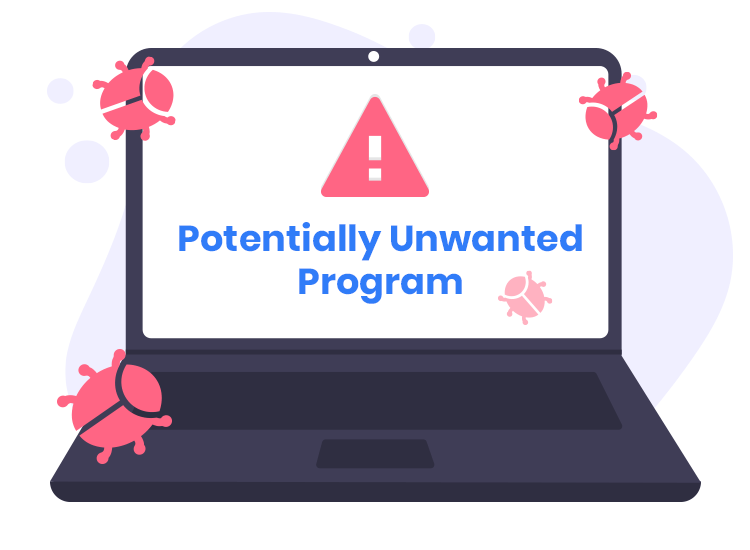Potentially Unwanted Programs (PUPs) are applications or software that users often unknowingly install on their systems. These programs typically infiltrate computers through bundled software, misleading advertisements, or dubious download sources. Though not always outright malicious, PUPs can harm your device’s performance and pose risks to your privacy and security by slowing down the system, displaying intrusive ads, and redirecting web traffic to unwanted sites. Named “Potentially Unwanted” due to their stealthy infiltration tactics, PUPs often surprise users by disrupting their computer’s functionality and invading their browsing experience.
Remove annoying malware threats like this one in seconds!
Scan Your Computer for Free with SpyHunter
Download SpyHunter now, and scan your computer for this and other cybersecurity threats for free!
Overview of Kipcapp: What is Kipcapp and How Does It Work?
Kipcapp is a specific PUP known for disrupting user experience through browser hijacking and the display of excessive advertisements. Once installed, it begins altering the browser’s settings to redirect users to unwanted sites, exposing them to intrusive ads, fake promotions, and possible scams. Kipcapp’s primary goal is to generate revenue through redirection, as each click on ads and redirects brings profits to its creators. The presence of Kipcapp can lead to slow system performance, constant interruptions, and a compromised browsing experience.
How Does Kipcapp Get Installed?
Kipcapp often infiltrates systems through bundling with free software or misleading download links. When users download software from unofficial sources or peer-to-peer networks, Kipcapp may slip in without the user’s awareness, as many free software installations offer additional programs pre-selected for installation. Once Kipcapp is on a device, it hijacks browsers and floods them with ads, redirecting the user to unfamiliar and sometimes harmful websites.
Harmful Consequences of Kipcapp
The installation of Kipcapp brings multiple negative effects. It can slow down the system due to high CPU and memory usage as it runs in the background, even when not actively being used. Additionally, Kipcapp poses a privacy risk by tracking browsing habits and sending this information to third parties, often without the user’s consent. Redirects to dubious websites increase the chance of exposure to phishing, malware, or fake tech support scams, compromising both the user’s security and online experience.
Ad Promotions and Intrusive Redirections
Once Kipcapp is installed, it takes control over the user’s browser by altering settings, redirecting them to promotional sites, and displaying popup ads. These redirections not only disrupt browsing but may also promote other potentially harmful software or fraudulent schemes that put personal information and finances at risk.
Detection Names for Kipcapp
Identifying Kipcapp on your device can be challenging, as various anti-malware tools use different detection names for this PUP. Here are some common detection names associated with Kipcapp:
- Adware.Kipcapp
- PUP.Optional.Kipcapp
- Adware.Win32.Kipcapp
- BrowserModifier:Win32/Kipcapp
- PUA:Win32/Kipcapp
If a security scan flags any of these names, it’s likely Kipcapp has infiltrated your system, and immediate action is recommended.
Similar Threats to Kipcapp
In addition to Kipcapp, there are several similar PUPs that can infect systems and disrupt user experience, including:
- Web Companion
- SafeFinder
- MyWay
- AnyProtect
- Driver Updater PUPs
All of these threats share common traits with Kipcapp, such as bundling with other software, displaying intrusive ads, hijacking browser settings, and redirecting users to unwanted sites. Removing these PUPs promptly is essential for maintaining system security and optimal performance.
Step-by-Step Guide to Removing Kipcapp
To completely remove Kipcapp from your system, follow these detailed steps:
Remove annoying malware threats like this one in seconds!
Scan Your Computer for Free with SpyHunter
Download SpyHunter now, and scan your computer for this and other cybersecurity threats for free!
Step 1: Uninstall Kipcapp from Your Computer
- Go to Control Panel: On Windows, open the Control Panel by typing it into the search bar and selecting it from the list.
- Locate Kipcapp: Under “Programs” or “Programs and Features,” look for Kipcapp or any other unfamiliar programs.
- Uninstall: Right-click on Kipcapp and select “Uninstall.” Follow the prompts to complete the uninstallation.
Step 2: Remove Kipcapp from Your Browser
On Google Chrome
- Open Chrome and go to Settings: Click on the three-dot menu in the top right corner, then go to “Settings.”
- Reset Chrome Settings: Scroll down to the “Advanced” section, click on “Reset and clean up,” and select “Restore settings to their original defaults.”
- Clear Extensions: Go to the “Extensions” section and remove any unfamiliar or suspicious extensions.
On Mozilla Firefox
- Access Add-ons: Click on the three-line menu and select “Add-ons and themes.”
- Remove Suspicious Add-ons: In the “Extensions” tab, look for and remove any add-ons related to Kipcapp.
- Reset Settings: Go to “Help” > “Troubleshooting Information,” then select “Refresh Firefox” to restore default settings.
Step 3: Scan Your Computer with Anti-Malware Software
To ensure no residual files remain, scan your computer with a reliable anti-malware tool, such as SpyHunter. Download and install SpyHunter, then initiate a free system scan to detect and remove any remaining components of Kipcapp.
Step 4: Clear Temporary Files and Cache
- Open Disk Cleanup: Type “Disk Cleanup” in the search bar, select your main drive, and clean up system files.
- Clear Browser Cache: Go to your browser’s settings and clear cache and cookies to eliminate any remnants of Kipcapp.
Prevention Tips to Avoid Future Infections
- Be Cautious with Downloads: Only download software from reputable sources, avoiding untrusted download sites.
- Decline Unwanted Add-Ons: When installing software, always choose the “Custom” installation option to avoid bundled programs.
- Use Reliable Security Software: Regularly scan your system with a reliable anti-malware tool, such as SpyHunter, to catch potential threats before they can cause harm.
- Stay Informed: Educate yourself on common scams and PUPs to recognize warning signs early.





